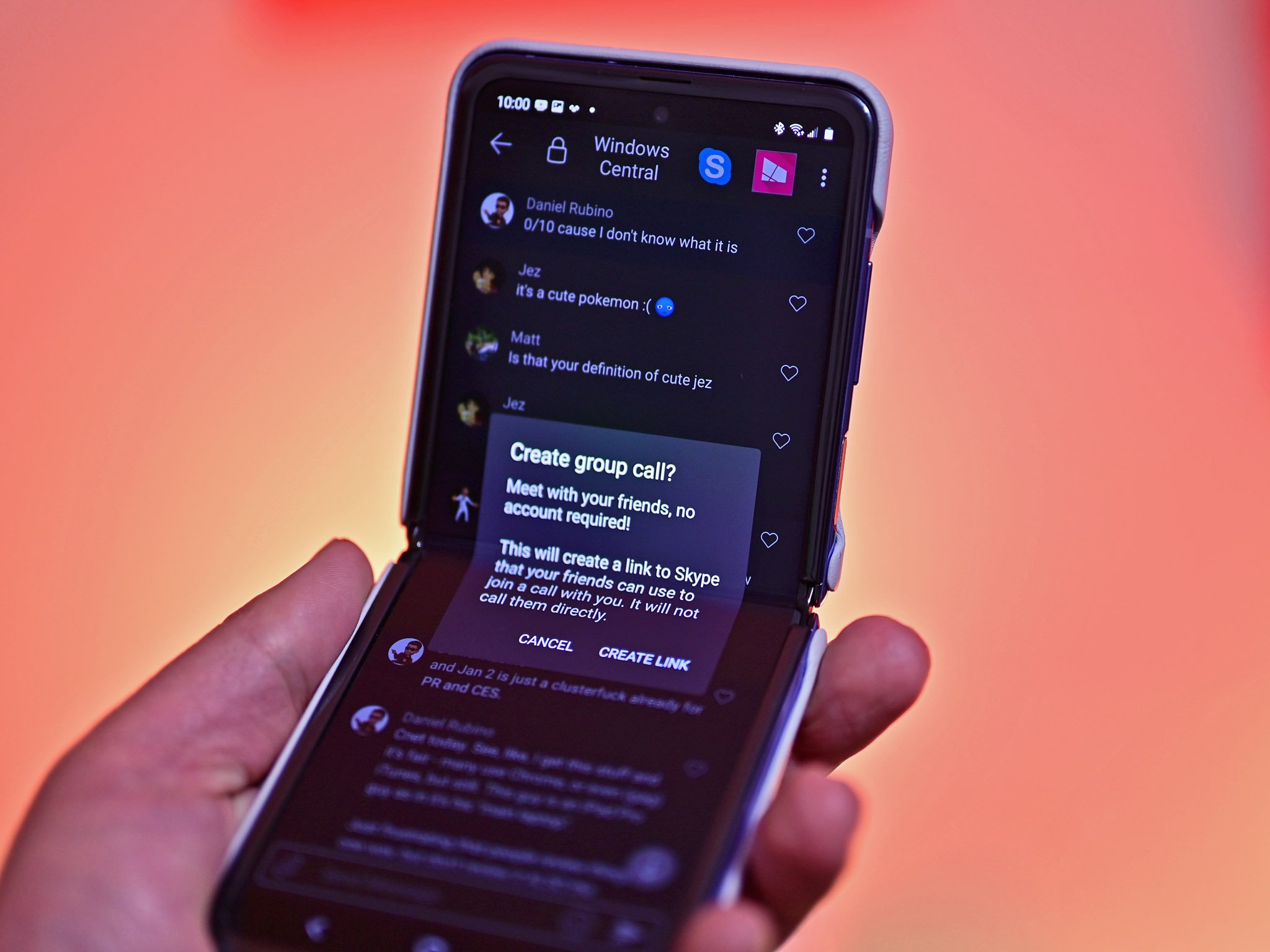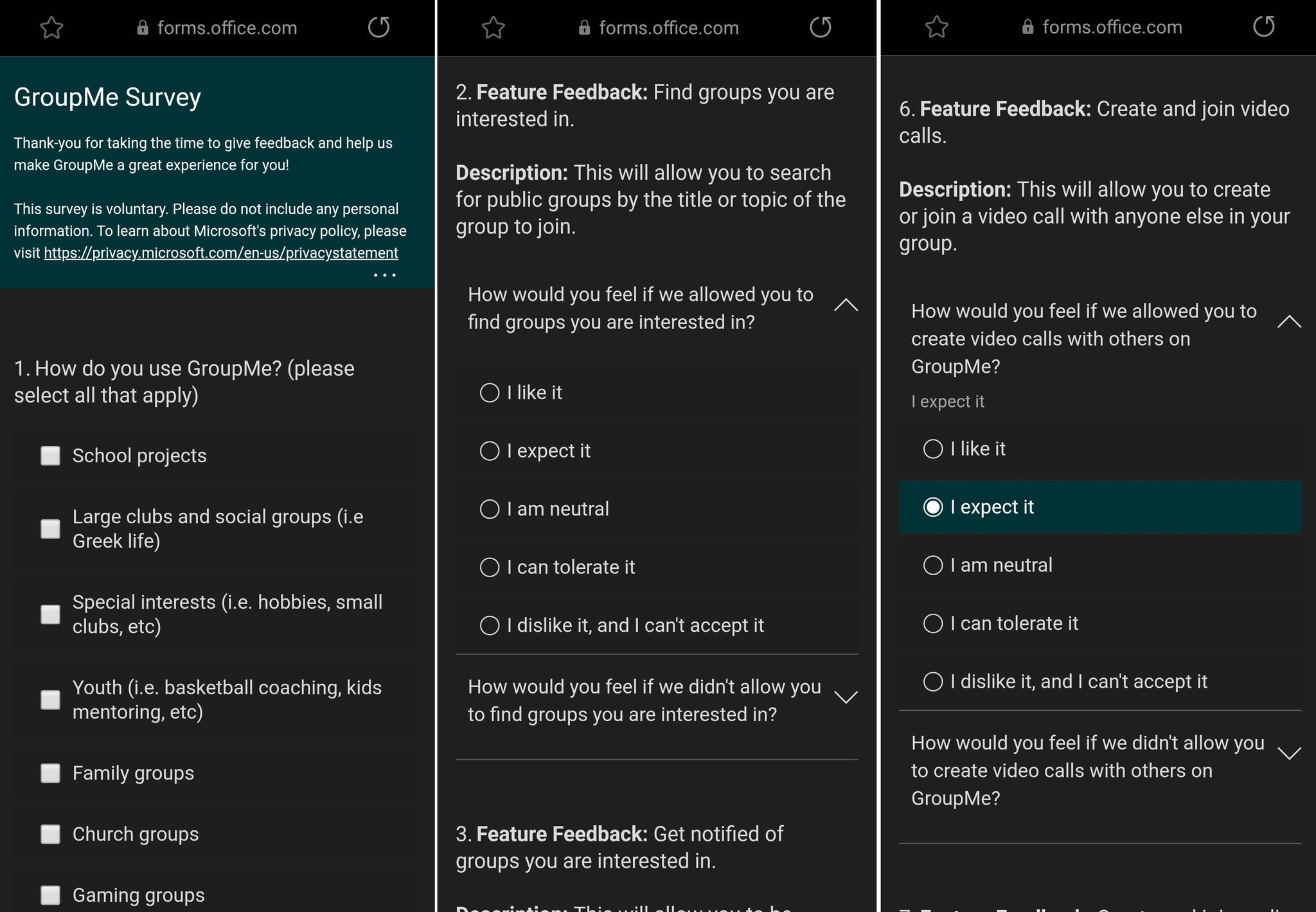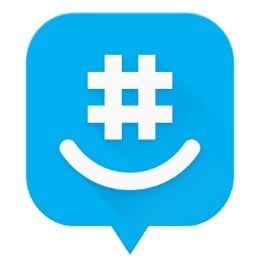Microsoft's GroupMe looks to expand into finding groups, voice, and video calls like Telegram, Signal
With Telegram and Signal's rise, Microsoft's GroupMe may turn into a more robust messenger app.

All the latest news, reviews, and guides for Windows and Xbox diehards.
You are now subscribed
Your newsletter sign-up was successful
What you need to know
- Microsoft's GroupMe app recently surveyed users on new features it would like to see.
- Features like voice and video chat, publicly searchable groups, and more are suggested.
- GroupMe was founded in 2010, acquired by Skype in 2011, which Microsoft then bought.
- If added, these features could let Microsoft compete against Telegram, Signal, and WhatsApp.
Microsoft's GroupMe messaging app, bought by Skype and then by Microsoft in 2011, has always been an odd duck. The app is surprisingly popular on US college campuses for class projects and it is a fun and funky messenger app.
But a recent survey of its users suggests the developers behind GroupMe are looking to expand the current private-group-focused service significantly, making it on par with Telegram, Signal, and the Facebook Messenger/WhatsApp duopoly.
The survey, which was sent out over the last few days, had seven main questions and ratings for the service's users regarding potential new features:
- How do you use GroupMe?
- Find groups you are interested in
- Get notified of groups you are interested in
- Google Docs integration
- Integrate with your primary calendar
- Create and join video calls
- Create and join audio calls
The first was a general question about how people use GroupMe with choices like groups for work, church, gaming, friends, youth (coaching, mentoring), and school projects.
The other six appear to be features that the GroupMe team is thinking of implementing and looking for feedback on priority and interest. Users were asked to respond with such options as 'I like it,' 'I expect it,' 'I dislike it, and I can't accept it.'
Ironically, for an app named GroupMe, there are no public groups that users can search for within the app. Instead, it relies on invites or shared links. But general searching of open groups based on hobbies, sports, politics, religion, and more are an increasingly popular feature found in apps like Telegram, Signal, and WhatsApp. Microsoft is also gauging if people want to be notified proactively of groups related to a user's activities.
However, adding public groups and searchability would be a big undertaking as it would presumably require some content moderation, something other messaging services are contending with.
All the latest news, reviews, and guides for Windows and Xbox diehards.
Google Docs integration makes sense since many US college students use GroupMe for classes, so sharing Google Docs would seem like an obvious addition. The same with integrating with a user's primary calendar is becoming increasingly popular for scheduling ease.
Perhaps the most curious is bringing voice and video call support to GroupMe. Despite being under the tutelage of Skype, GroupMe never could integrate with the legacy VOIP service. Last year, Microsoft finally did add the Skype' group call' feature, which creates a link to hand off calls to Skype. It is a simple kludge, but it sounds like Microsoft may thinking of adding some native VOIP and video support directly.
GroupMe: A slow burn
Microsoft has quite a few messaging services these days, with Skype and Teams being the biggest. However, neither has turned into a consumer-preferred option despite the attempted push at Microsoft Teams for personal use.
Of course, one is right to criticize Microsoft for being years behind the curve. GroupMe always had a decent following, but it never received much support from Microsoft, with only a slow trickle of new features (and dark mode) over the years.
All of that may be changing, however. Recent additions like "Campus Connect" let users find groups based on a college email address. There is also the new 'reply to comment' feature, which is common amongst every other messenger platform. When combined with the above survey, it sounds like Microsoft finally realizes that GroupMe's charming UI, emojis, and famous "heart" like feature may have more potential than it thought.
GroupMe is currently available on iOS, Android, Windows 10, Xbox, and the web.

Daniel Rubino is the Editor-in-Chief of Windows Central. He is also the head reviewer, podcast co-host, and lead analyst. He has been covering Microsoft since 2007, when this site was called WMExperts (and later Windows Phone Central). His interests include Windows, laptops, next-gen computing, and wearable tech. He has reviewed laptops for over 10 years and is particularly fond of Qualcomm processors, new form factors, and thin-and-light PCs. Before all this tech stuff, he worked on a Ph.D. in linguistics studying brain and syntax, performed polysomnographs in NYC, and was a motion-picture operator for 17 years.


